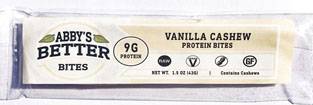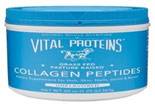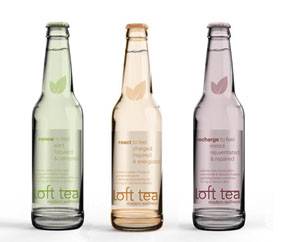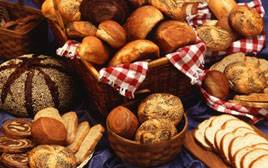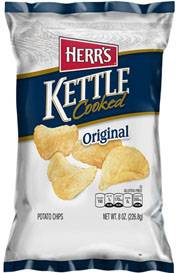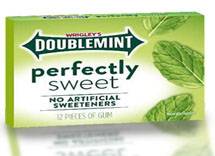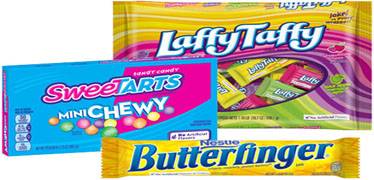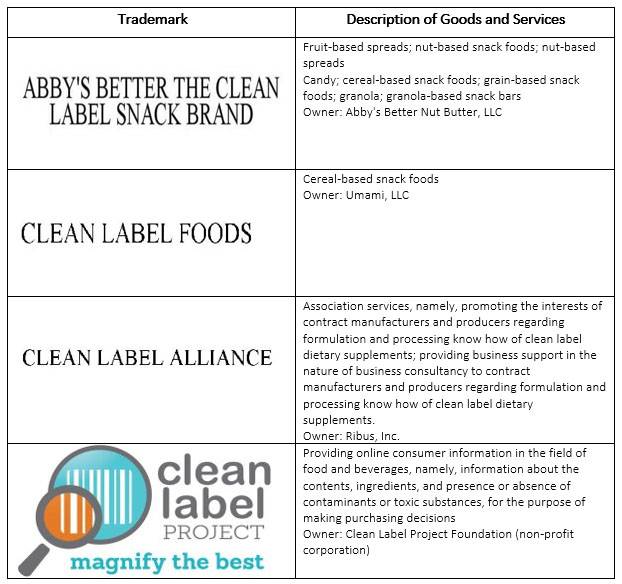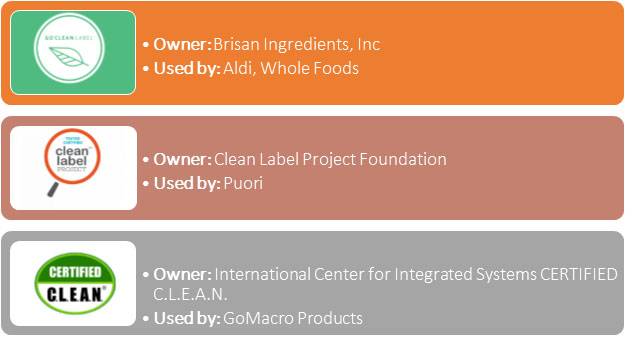What Is Clean Label?
Labeling in the food and beverage industry is highly regulated, especially in the developed countries with high consumer awareness. Labels on packaged food contain extensive information on the ingredients of the food product. Labels enable the consumers to select a food product based on their needs, and there has been a rising call for a shift towards more transparent labels. While addressing these consumer needs, the food companies could also differentiate their products from others while giving consumers the choice to pick products that meet their expectations. This paper describes the recent developments in consumers’ expectations which have resulted in what could be termed as the Clean Label Movement. This has resulted in the need for transparent labels, which clearly identify the contents, thus enabling the consumer to exercise an option regarding the purchase of the food item.
The clean label movement began in the UK when food safety was a major concern due to the increased number of scandals. This created a need for traceability of the food ingredients through which the customers’ trust could be won. However, over the years the definition of clean label has changed due to consumers’ increased concerns regarding health, nutrition and well-being. The food loving Gen X’s increasing desire to know the nature of ingredients present in the food items has immensely contributed to the clean label movement. The clean label movement is currently growing across the globe and it is expected to spread across various industries too.
Clean labels are voluntary in nature and therefore self-disclosures have been initiated by food and beverage companies. It is expected that the disclosures are accurate and simply worded. A good clean label demands truthfulness in claims thereby not misleading the consumers. Claims such as “no added sugar” may be misleading if other ingredients are used for sweetening of the product. The use of terms “healthy” for food products is misleading when the sugar content is higher than what could be termed as healthy. The incentive for such disclosures is consumer trust, which is an intangible asset and helps increase loyalty towards brands.
Characteristics Of Clean Label
Companies adhering to clean label principles, revise their formulations in such a way that helps them make front of the pack claims aligned with consumer needs. Some key characteristics of clean labels that will help companies reach out to consumers are listed below:
- The labels must be clear and easy to read, with no long, crowded, technical names that are confusing.
- Some important clean label indicators are:
- No artificial ingredients,
- No additives, and
- No preservatives
- Some independent claims that have overlapped into clean label claims are:
- Natural
- Organic
- Free-from
- Local, and
- Sustainable
Consumers have increasingly started relating these claims with cleaner labels, thus making the definition of clean label broader.
Comparison Among Clean Label, Natural, Organic and Free-From Products
Clean label and Natural
- Not all clean label products can contain the claim “natural” food product. For example, “Natural colors” such as carotenoids, beet anthocyanins, and chlorophyll are not permitted in “natural” food products, even though they are acceptable in clean label products.
- Natural anti-microbial or preservatives such as cultured vegetable juice, cherry powder and vinegar are not allowed in products that claim “natural” food products. However, such preservatives are allowed in clean label products.
Clean label and Organic USDA’s National Organic Program has permitted the use of compounds such as xanthum gum, and calcium hydroxide in organic products; however, such products cannot be considered as clean label products.
Clean label and Free-fromFree- from foods may not contain ingredients such as wheat, dairy products, gluten etc. and are therefore considered safe for people with allergies. The free-from claims primarily mean free-from allergens. However, this does not classify all free-from products as clean label automatically, thus making free-from another class of products such as organic and natural products.
Technical concerns that do not meet the clean label criteria
- Vitamins and minerals used for enrichment and fortification of food do not usually meet clean label requirements.
- Clean label products that have not been processed may lose their absorption or digestion properties.
- To make a product clean label, such as removal of sugar, processing is sometimes necessary.
- Addition of natural ingredients into products usually affects the shelf-life of products.
- Texture and taste may also be affected due to removal of artificial ingredients or changing the processing conditions.
The Clean Label Alliance
As a response to various technical issues that companies face during their transition to clean label products, the Clean Label Alliance was formed. The Clean Label Alliance was officially launched by Ribus in late 2018. Ribus, also known as the “Original clean label company” launched the alliance in response to the increasing demand for clean labels for dietary supplements. The alliance is currently composed of 5 members which is likely to grow in the near future. Global leaders in the dietary supplement industry got together to provide support and solutions to companies for smoother transition and efficient production of clean label supplements.
A company can approach the clean label alliance for its services by filling a request form in the clean label alliance website. The issue that the company faces may be, for example, regarding the production difficulties it is facing. The Alliance will then provide suggestions for implementation, and the problem-solution process can be repeated until the problem is solved.
The current members of the Clean Label Alliance are:
- Biogrund
Based out of Germany, Biogrund provides color coating systems to pharmaceutical and nutraceutical industries. Its manufacturing plants have a high GMP standards and are all organic certified. - Bosch Packaging Technology
Headquartered in Germany, Bosch Packaging Technology supplies single machines, combined systems and complete solutions for packaging of food and pharmaceuticals. It is also one of the top manufactures of capsule filling machines. - Lonza
Lonza is a Swiss company, and is a supplier of pharmaceutical, biotech and specialty ingredients. Lonza Consumer Health and Nutrition focuses on high quality scientific ingredients as well as formulation know-how with capsulation and encapsulation technologies. Very recently, in March 2019, Lonza launched the “Oceanix” in U.S.A. and Canada which is its latest clean label performance nutrition product. - Natoli Engineering Co
Natoli Engineering Company based out of the U.S., is engaged in the manufacture of tooling for tablet press. The company is a provider of tablet presses and production software. Other services that Natoli offers is tablet design, tablet press refurbishment, formulation testing and analysis and technical training. - Ribus
Ribus based out of the U.S., is a functional ingredient manufacturing company that supplies natural and organic rice based ingredients. Ribus is also known as the original clean label company. The technological know-how of Ribus helps bring clean label innovation to a wide range of products. It is also involved in reformulation and creation of new clean label products. One such solution developed by Ribus is the newly launched Nu-Bind that is a natural alternative to synthetic plasticizers.
Key Clean Label Market Players
Companies particularly in the ingredients sector, have opted to become major clean label players in the ingredients market. Some of these have been presented below:
- Cargill: A U.S.- based conglomerate has actively participated in the clean label initiative. Its product line called “SimPure” is a line of natural starch containing a blend of native starches from various botanical sources making it a label friendly product with better shelf life, process tolerance and familiar ingredients.
- Archer Daniels Midlands Company: A Chicago-based firm, which is one of the world’s largest agricultural processors and food ingredient providers, recently acquired Citrus, the world’s largest citrus oils and ingredient manufacturers. Through this acquisition, ADM has access to a vast portfolio of clean label products and ingredients.
- Koninklijke DSM N.V.:A multinational Dutch company that works on health, nutrition and materials, DSM replaced its traditional cheese ripening enzyme with a benzoate-free accelerzyme in response to clean label demand by consumers. In Feb 2019, DSM announced acquisition of a 75% shareholding in Andre Pectin which is Asia’s largest producer of apple, citrus pectin, and hydrocolloids for providing texture solutions to food. The demand for new hydrocolloids is based on consumer demand for clean labels.
- Kerry Group PLC Kerry Group PLC is an Ireland-based public food company with primary focus on better taste and nutrition. Kerry has been steadily building a wide portfolio of clean label products and services in the recent years through mergers and acquisitions. One such example is its acquisition of Ariake, a North American business of Ariake Japan that is a specialist in manufacturing natural food seasonings.
- Ingredion Inc.A global ingredient solutions company headquartered in the US that makes sweeteners, starches, nutrition ingredients and biomaterials used in food and beverage, paper and pharmaceutical industries. In 2018, Ingredion launched two clean-label organic corn starches namely Novation 309 and 609 Prima. These starches can withstand high processing conditions, cold temperatures while having a good shelf life, thus finding applications in alternative dairy products, refrigerated soup, and savory foods.
- Tate and LyleTate and Lyle, a U.K. based company, has widely contributed to the clean label movement. It is a specialist in providing clean label starches. It manufactures non-GMO based clean label starches that serves the same functionality as that of their GMO counterparts.
- Corbion NVCorbion is a Dutch food and biochemical company based out of Amsterdam, Netherlands. Corbion has developed various clean label solutions that find applications in chilled deli-style foods, baked foods, and ingredients for meat and poultry. An example of a clean label product that corbion makes is the Verdad N5 that is produced from fermentation of corn or cane sugar and keeps meat and poultry products safe by suppressing the growth of pathogens. Corbion’s “pristine family” of product, provides clean label solutions to remove unfriendly conditioners and oxidation systems for baked products.
- Chr Hansen A/SChr Hansen A/S, a Denmark based bioscience company develops natural solutions for nutritional, food, agricultural, and pharmaceutical industries. Hansen produces cultures, enzymes, probiotics and natural colors for foods, confectionery, beverages, dietary supplements and animal feed. Hansen provides a number of clean label solutions such as Fruitmax Pineapple WSP that is a vegetable-based coloring foodstuffs powder with an attractive yellow shade. An excellent clean-label alternative to beta carotene, natural beta-carotene and synthetic colors (Yellow 5), it provides stability across a wide range of bakery products.
- E. I. du Pont de Nemours and CompanyDuPont is an American subsidiary of the largest chemical conglomerate, DowDuPont. Recently DuPont showed its commitment towards clean label by announcing that its Nutrition and Health division will expand its R&D team by creating a new facility at Barbrand that will be completely focused on ingredients and process development. DuPont produces a range of clean label solutions. The MicroGRAD family of clean label product is one such solution that helps protect shelf life. MicroGRAD 200 helps in protection from molds, yeasts and gram-negative bacteria thus finding applications in sauce, baked goods, pasta, dressings, etc.
- Whole Foods Market Inc.Whole Foods Market is a supermarket based in the US. and is a subsidiary of Amazon since 2017. The Whole Foods Market is known for keeping clean label foods and has a long list of banned ingredients for its suppliers. The list of banned ingredients includes artificial dyes, bleached flour, saccharin, nitrates, nitrites etc. Whole Foods Market is also known for its color-based front of the pack labels that helps consumers make healthier choices.
Start-Ups
Most startups are focused on improving existing food products, for example, through removal of artificial ingredients from food products. Few startups have focused on transparency and efficient information dissemination to consumers, regulators and competitors while providing the stakeholders an opportunity to use available information advantageously. Some startups that are making waves in the clean label market are listed below:
Label Insight Inc.Label Insight is a SaaS company and is headquartered in the U.S. The core mission of the company is to provide greater transparency on food products, thus helping consumers understand what they consume. Label insight provides information on food label data to various stakeholders such as the government, retailers, app developers etc. by efficient utilization of information available on consumer packaged goods from supply chain and on-package information. Label Insight also owns patents on data science such as the US10055710B2 which is an information management system for product ingredients helping stake holders such as manufacturers and retailers understand the competitive nature of their products, and help position products according to their needs.

